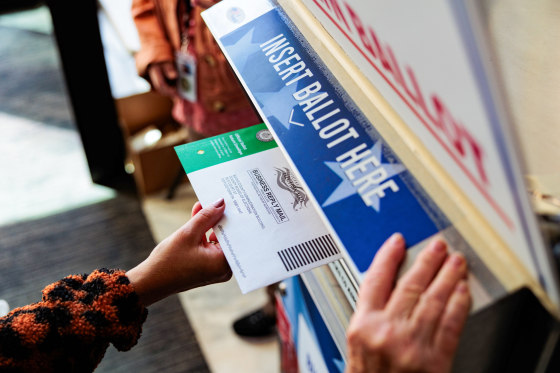WASHINGTON — Taking up a contentious election issue with nationwide implications, the Supreme Court on Monday agreed to consider whether federal law bars states from counting mail-in ballots that are received after Election Day.
The case pits Republican-led Mississippi, defending its election law that allows for mail-in ballots received after Election Day to be counted, against the Republican National Committee and the state's own Republican Party. The Libertarian Party of Mississippi also joined the challenge in opposing the law.
If the RNC's argument were applied nationwide, it would upend election law in many states, which count ballots that come in after an election as long as they were postmarked on time. Many of those laws were designed to ensure that overseas military members who submit ballots from afar have their votes counted.
Legal disputes over mail-in ballots are common. Until recently, expansion of absentee voting options was a bipartisan effort, but some Republicans have turned against it at the instigation of President Donald Trump, who has complained without evidence that it allows for elections to be "rigged."
A swift ruling could come in time to be applied in the 2026 midterm elections.
At issue is Mississippi's election law that allows mail-in ballots to be counted as long as they are received within five business days after Election Day.
It is one of 17 states that have such a law, while another 14 states have similar measures that only apply to registered voters who live overseas, according to a brief filed by 19 states in support of Mississippi. Even states that do not have extended deadlines for absentee ballots have exceptions for members of the military and their families, according to the brief.
Mississippi appealed after the New Orleans-based 5th U.S. Circuit Court of Appeals ruled in October 2024 that under federal law, ballots must not just be cast but also received by state officials by Election Day.
Federal law dictates that Election Day is on "the Tuesday next after the first Monday in November," but each state administers its own elections.
Mississippi Attorney General Lynn Fitch, a Republican, said in a court filing that states have broad leeway over how they conduct their elections. Nothing in federal law prevents states from receiving ballots after Election Day as long as they were already cast and submitted, she wrote.
Lawyers for the RNC countered in their brief that it is only recently that states have expanded mail-in voting and that, based on history and tradition, federal law should require votes to be received by Election Day.

